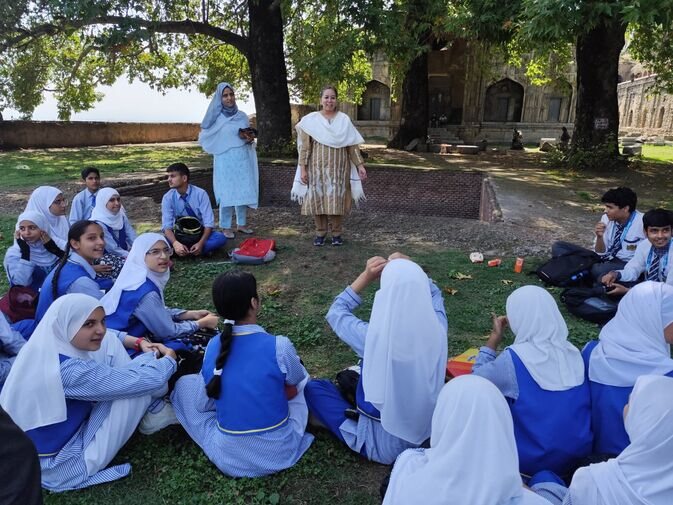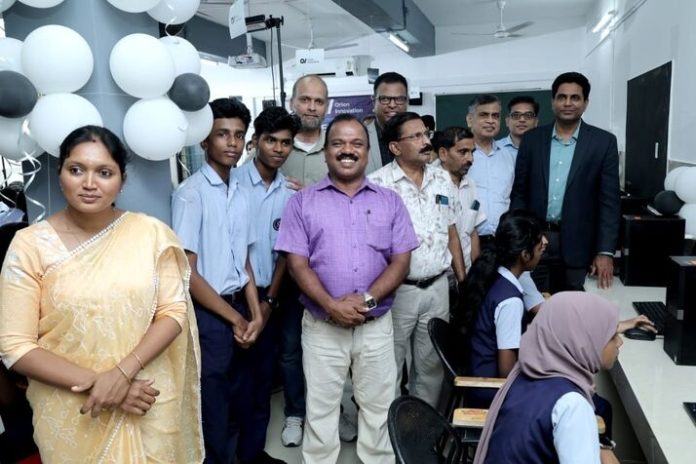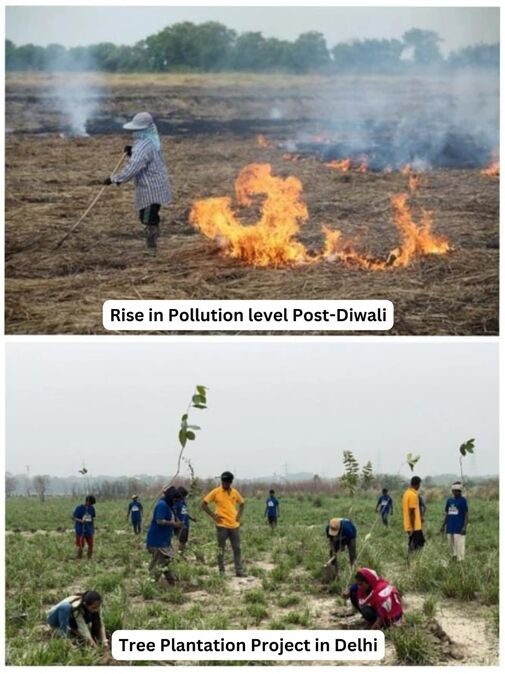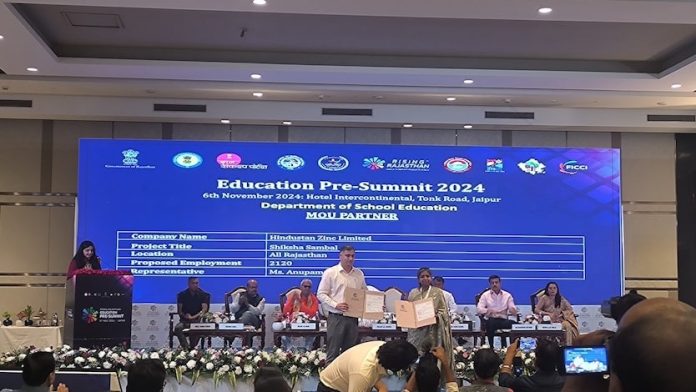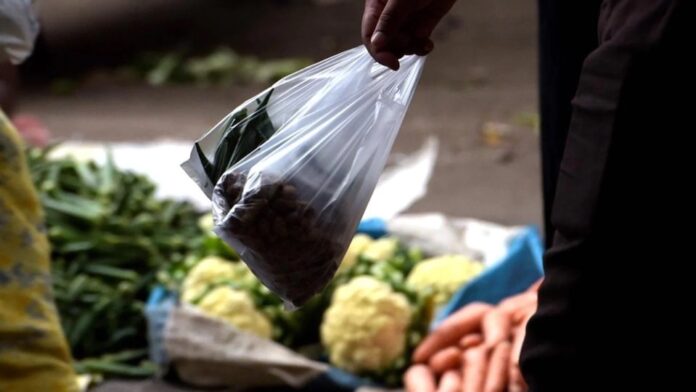Post-Diwali Air Quality in Major Cities Reinforces Need for Expanded Green Lung Spaces
As Diwali lights fade from Indian skies, the growing environmental concern over rising pollution levels resurfaces. Each year, the festive spirit is overshadowed by deteriorating air quality as firecracker emissions add to the vehicular and industrial pollution choking urban cities. Even before Diwali celebrations began, Delhi’s air quality had deteriorated over several days, with most monitoring stations recording levels in the ‘very poor’ category on the Air Quality Index (AQI). This was primarily due to stubble burning in neighbouring states, vehicular pollution, firecracker use and unfavourable surface wind conditions. Data from the Central Pollution Control Board (CPCB) has indicated that Delhi’s 24-hour average AQI on (13-11-2023) was 301 which is exponentially high compared to normal AQI which ranges between 0-50. AQI value above 300 is considered to be hazardous to health. On November 4, the AQI exceeded 300, reaching a hazardous level 353.
Apart from debilitating air pollution, the city is also witnessing rising water pollution levels as thick froth laced with high levels of ammonia and phosphates, vitiates the Yamuna. The situation in two other major cities—Kolkata and Mumbai—has also deteriorated, placing them fourth and eighth, respectively, among the world’s top 10 most polluted cities.
According to the West Bengal Pollution Control Board (WBPCB), the AQI in most parts of Kolkata crossed 200 and was seen in the range of 230-290 in different regions of Kolkata, while in Mumbai, the overall AQI was around 230, as recorded after Diwali 2023.
Experts are raising concerns about the potential health hazards arising from these issues. They are emphasising the need to identify and eliminate local pollution sources. They also call for remedial measures in urban centres, especially to address the escalating levels of particulate matter (PM) in the air.
One of the most effective ways to improve air quality is by increasing green lung spaces in these cities through tree planting. Trees naturally purify the air by absorbing harmful pollutants, filtering PM, releasing clean oxygen, and significantly reducing smog levels.
“Cities like Delhi and Mumbai urgently require environmental interventions to bring down the alarming air pollution levels. Urban greenery is needed here to mitigate the urban heat island effect, absorb pollutants and improve air quality. Green lung spaces in concrete jungles play a critical part in sheltering biodiversity, filtering stormwater to reduce the kind of flooding that Delhi endured not too long ago, curbing greenhouse gas emissions and mitigating the impact of climate change, ” says Pradip Shah, co-founder of the social enterprise Grow-Trees.com, which is actively undertaking various afforestation initiatives across India.
Grow-Trees.com’s ‘Trees for Delhi’ project, has already planted over 1,80,000 trees in the capital and aims to plant a total of 2,05,000 trees. “The urban ecosystem of Delhi is defined by two major geographical features, the Yamuna River and the Delhi Ridge. It is essential to safeguard the ecological health of both. In 2025, in order to strengthen the city’s resilience to environmental challenges, we aim to plant over 25,000 trees in areas including Yudhister Setu, Signature Bridge and Usmanpur Village,” adds Mr Shah.
Previously, the plantation project was implemented in several locations, including Yudhister Bridge IT Park, Jheel Park, Smriti Van, Golden Jubilee Garden, CWG Village, Green Belt Yamuna, Art of Living area in Yamuna and Sanjay Lake in the Delhi-NCR region. Fruit-bearing and medicinal trees such as Neem, Shisham, Jamun, Sohajna, Peepal, Ashok, Pilkhan, Papri and Burma Dek are being planted as part of the project. Upon maturity, each tree can absorb approximately 20 kg of CO₂ per year, which is considered a conservative estimate for the sequestration potential of trees globally.
Rising pollution levels in cities like Kolkata contribute to climate change, affecting eco-sensitive areas such as the Sundarbans in West Bengal. Grow-Trees.com has hence launched the Trees for Tigers® initiative, aiming to plant 2,10,000 trees in the villages of Ranabelia, Randhanagar, Manmathanagar, Harispur and Ramnagar in the Gosaba Block of West Bengal. Meanwhile, the Trees for Tigers® project in Ramtek, Maharashtra, will plant over 5,36,023 trees to help mitigate climate impacts and reduce human-wildlife conflicts in the region.
Disclaimer: This media release is auto-generated. The CSR Journal is not responsible for the content.
CSR Project to Launch Nationwide Campaign to Combat Myopia in India
ENTOD Pharmaceuticals will be launching its annual nationwide campaign to address the rising prevalence of myopia in India from 14th November 2024 starting from Children’s Day for a week. With a growing number of children and adults affected by this condition, ENTOD’s initiative aims to foster awareness on prevention, detection, and management through a series of outreach activities across the country.
Recent studies indicate a global increase in myopia, with projections estimating that nearly one-third of urban Indian children aged 5 to 15 will experience myopia by 2030 due to lifestyle factors and prolonged screen time. A publication in the British Journal of Ophthalmology reveals that one in three young people globally are short-sighted, with India expected to see rates as high as 49% by 2050. These statistics highlight an urgent need for proactive measures to address the future burden of ocular health issues.
Nikkhil K Masurkar, CEO of ENTOD Pharmaceuticals, emphasized the campaign’s critical role, stating, “The rise of myopia in India, particularly among children, is a serious public health issue. With numbers continuing to increase, education on preventive care and the importance of early detection becomes essential. Our annual campaign reflects ENTOD’s commitment to safeguarding vision health by ensuring that families are aware of regular eye checkups and lifestyle changes that can help manage and reduce myopia.”
This year, the campaign seeks to reach over two crore people, surpassing last year’s outreach numbers. To achieve this, ENTOD has enlisted the participation of more than 1,000 doctors and engaged between 5,000 to 10,000 volunteers to facilitate various awareness activities.
Activities include interactive sessions in schools where children will benefit from presentations by ophthalmologists and free eye screenings. In clinics and hospitals, patients will receive educational materials in multiple regional languages, along with free sample distributions for those in need. Additionally, radio awareness programs will be broadcast in major cities, including Mumbai, Delhi, Chennai, Hyderabad, Kolkata, and Bangalore, to further extend the campaign’s reach.
Covering prominent locations such as Mumbai, Delhi, Chennai, Hyderabad, Lucknow, Surat, Indore, and Jaipur, the initiative is designed to create maximum community engagement. Dr. JITENDRA JETHANI Baroda Children Eye care and Squint Clinic, Vadodara, India · Pediatric Ophthalmology and Strabismus MS, DO, DNB, FNB, FAICO, a senior ophthalmologist participating in the campaign, highlighted the importance of preventive care, saying, “Parents and caregivers must stay vigilant about their children’s eye health. Regular screenings, limiting screen exposure and promoting outdoor activities are essential to slow myopia progression. Through ENTOD’s campaign, we aim to equip communities with the knowledge needed to safeguard vision.”
By raising awareness of the causes and risks associated with myopia, ENTOD Pharmaceuticals continues its efforts to encourage proactive steps toward improved eye health across India.
Disclaimer: This media release is auto-generated. The CSR Journal is not responsible for the content.
CSR: MoU Signed with Rajasthan Government to Invest ₹36 Crores in Education Development
Hindustan Zinc Limited has signed a Memorandum of Understanding (MoU) today with the Department of Education, Government of Rajasthan, committing to an investment of ₹36 crores over the next five years for the development of education in the state. The announcement was made during the Education Pre-Summit, part of the Rising Rajasthan initiative, held in Jaipur. The event was attended by several dignitaries, including Prem Chand Bairwa, Deputy Chief Minister of Rajasthan, Madan Dilawar, Minister of Education, Rajasthan, and Colonel Rajyavardhan Rathore, Minister of Youth Affairs and Sports, Rajasthan.
The investment will be focused on 72 government schools under its flagship education initiative, Shiksha Sambal program. The company aims to enhance the quality of education through various development programs, including teacher training, infrastructure improvement, and vocational training. This effort is aligned with the company’s commitment to fostering sustainable and inclusive growth in the region. The key focus areas will include holistic student development through Shiksha Sambal, model schools equipped with state-of-the-art facilities, and career counseling in line with the National Educational Policy 2020.
“We are committed to ensuring that students in Rajasthan receive not only quality education but also holistic support that will prepare them for future opportunities. Our focus on vocational training and career counseling, alongside improving school infrastructure, will empower students and build a strong foundation for their futures,” said Arun Misra, CEO and Whole Times Director, Hindustan Zinc Limited. “This investment will uplift educational standards and contribute to the long-term development of the community.”
The Shiksha Sambal program, Hindustan Zinc’s flagship education-focused CSR initiative, has been running since 2008 in collaboration with Vidya Bhawan Society. It aims to strengthen the conceptual knowledge of rural students, significantly enhancing their learning outcomes. The program also focuses on providing additional training to government teachers, ensuring improved educational standards in the region.
Building on this commitment, Hindustan Zinc, through the MoU, will implement a range of initiatives, including upgrading school infrastructure, offering specialized career guidance, and organizing seasonal educational camps. These efforts are aligned with the company’s vision to support holistic education in Rajasthan.
Over the past three years, the company has invested significantly in various educational initiatives, including Unchi Udaan, which nurtures talent for top Indian institutions, and Jeevan Tarang, which empowers children with disabilities. These efforts exemplify Hindustan Zinc Ltd. ’s dedication to enabling access to quality education and creating pathways to academic and professional success for underprivileged youth. In addition to education, Hindustan Zinc Ltd. ‘s comprehensive community development initiatives have positively impacted nearly 2 million people across approximately 3,700 villages, further underscoring its commitment to fostering sustainable livelihoods and improving quality of life in these communities.
Disclaimer: This media release is auto-generated. The CSR Journal is not responsible for the content.
CSR: ‘Freedom Park’ Unveiled to Promote Community Wellness
Gemini Edible & Fats India Limited (GEF India) makers of Freedom Healthy Cooking Oils, as a part of their corporate social responsibility (CSR) initiative unveils ‘Freedom Park’, a specially designed green space for the neighbourhood community in Balajinagar, Kukatpally to relax, exercise, play and bond. The park was unveiled by Mr. Akshay Chowdhry, Group Vice President, GEF India and Mr. P. Chandra Shekhara Reddy, Sr. Vice President, Sales & Marketing, GEF India, in the presence of representatives from the Greater Hyderabad Municipal Corporation (GHMC) and the local residents.
GEF India has developed the Freedom Park with a contribution of Rs. 2.76 Crores. It is equipped with a jogging/walking track, an amphitheater, a covered zone for community gatherings, a dedicated children’s play area with bright and colourful swings, equipment for the outdoor gym, a yoga zone, benches, washroom and picturesque landscaping to the park, making it a welcoming retreat amidst the concrete jungle. This initiative reflects GEF India’s dedication to encouraging a healthy and active lifestyle for communities where they live and work. With its wide array of amenities, the park is set to become a cherished resource for recreation, wellness, and social engagement, inviting residents to unwind and connect in a serene green environment.
Mr. Akshay Chowdhry, Group Vice President, Gemini Edibles & Fats India Limited, said, “Our goal was to create a safe and welcoming environment that encourages outdoor activities, family gatherings, and fitness. Freedom Park will serve as a vital resource for recreation and social engagement, helping to bring the community closer together while promoting a healthier lifestyle. We envision it as a haven where residents can unwind and connect with nature.”
Mr. P. Chandra Shekhara Reddy, Sr. Vice President, Sales & Marketing, Gemini Edibles & Fats India Limited, said, “At Freedom Oil, we believe in encouraging people to eat healthy and live healthy. Our collaboration with GHMC has resulted in a space that not only enhances the quality of life for Kukatpally’s residents but also fosters a sense of community and well-being. We are excited to see Freedom Park flourish as a beloved destination for all and encourage them to lead a healthy lifestyle.”
Disclaimer: This media release is auto-generated. The CSR Journal is not responsible for the content.
National Legal Services Day: Mahila Panchayat of Delhi
With an average of three rape cases along with multiple cases of domestic, digital and psychological violence against women on a daily basis, Delhi has become one of the most unsafe cities for women. The 2023 National Crime Record Bureau (NCRB) data highlights that Delhi has topped the chart in terms of incidence of violence against women for the third consecutive year. But still, the statistics only show the tip of the iceberg when the real problem lies in the number of unreported cases.
It is most certain that Delhi witnesses multiple cases of women being thrashed and harassed both indoors as well as outdoors in every alternate household. Every mohalla has its own story of violence against women, from physical domestic abuse to eve teasing. But more often than not, these cases are hardly reported, sometimes to save the complainant’s time and dignity while other times to ensure her safety.
Recognising that the police and judicial apparatus cannot handle all of these cases every day, the Delhi government launched the Mahila Panchayat program in 2001 in Delhi NCR. The program is run by the Delhi Commission of Women in collaboration with various non-governmental organisations (NGOs) or community-based organisations (CBOs) that believe in working at the grassroots level.
Working of Mahila Panchayat
The Delhi NCR is divided into several wards and each ward has one or more Mahila Panchayats, depending on its population density. The work of the Mahila Panchayat is to guide the Mohalla on women-centric issues and generate public participation. The Panchayat solves the problem of women who cannot approach relevant authorities during the time of grievance. Mahila Panchayat also becomes a first-hand platform for day-to-day violence cases, ranging from severe burns to intercaste marriage.
The government sets up a Mahila Panchayat inside a relevant area in Delhi like an urban village, unauthorised colony or slum with a sizeable population of more than 5000. It is mainly a space for those not falling in the high-income bracket and are employed in unskilled or unorganised sectors.
The few basic aims that navigate the working of a Mahila Panchayat in an area are: reducing violence against women by creating awareness, assisting women in legal procedures and educating them about their rights, generating grassroot level women participation, ensuring SOPs set up by the Women Commission are followed and lastly, maintaining a general record of crime against women for taking follow-ups.
Other than the NGOs, many volunteers and individuals working at the grassroot level are also connected in a network built by various Mahila Panchayats. Mostly, these volunteers are women from the same neighbourhood.
The composition of each Mahila Panchayat has one Panchayat Coordinator and two community workers. While the work of a coordinator includes managing the overall functioning of the Mahila Panchayat in the area, the community workers are responsible for assisting the Panchayat Coordinator. Usually, one Mahila Panchayat will always have more than two community workers. At times, there can be more than two workers depending on the decision of the commission. The capacity of Mahila Panchayat depends on the density of the area allocated to it.
Since each Mahila Panchayat is affiliated with at least one NGO, the commission ensures that the NGO submits a written Performance Undertaking. This also ensures that only the performing NGOs get the required funding to run a Mahila Panchayat. The commission, while choosing the correct NGO, audits each applicant to check for discrepancies minutely.
Mahila Panchayat Toothless
Despite Mahila Panchayats being in very close proximity to the community, they cannot do much about the current situation of women in Delhi. This comes as the institution does not have any legal binding or authoritative power. All the orders released by Mahila Panchayat are non-binding on any citizen. This makes this program almost as effective as the work of a local NGO.
However, the role of Mahila Panchayat in assisting legal procedures on behalf of women and spreading awareness cannot be subdued. It is almost a universal truth that any effective action can come only through changing the values and social morality of the entire society.
सीएसआर फंड से प्लास्टिक मुक्त होगा महाकुंभ
आस्था के महाकुंभ को स्वच्छ और इको फ्रेंडली बनाने के लिए उत्तर प्रदेश की योगी सरकार नए-नए उपाय कर रही है। लोगों को जागरूक करने से लेकर के मेला क्षेत्र और पूरे प्रयागराज (Prayagraj News) को प्लास्टिक मुक्त (Plastic Free Initiatives by CSR) करने का अभियान चलाया जा रहा है। इसी क्रम में अब प्रयागराज नगर निगम पूरे शहर में क्वाइन मशीन की स्थापना कर रहा है। सीएसआर फंड (CSR Fund) के माध्यम से इन क्वाइन मशीन को स्थापित किया जा रहा है। इनमें दस रुपए का सिक्का डालने पर नागरिकों को कॉटन के थैले (Cotton Bag) मिलेंगे। ऑनलाइन पेमेंट करने पर भी थैले हासिल किए जा सकेंगे। इस पहल से लोगों को प्लास्टिक के बैग (Plastic Bag) इस्तेमाल नहीं करने के लिए प्रेरित किया जा सकेगा और महाकुंभ मेला क्षेत्र के साथ-साथ पूरे प्रयागराज को प्लास्टिक मुक्त (Plastic Free Kumbh) बनाने में मदद मिलेगी।
सीएसआर से मिलेंगी थैलियां, प्लास्टिक मुक्त होगा कुंभ
The CSR Journal से ख़ास बातचीत करते हुए नगर आयुक्त सीएम गर्ग ने बताया कि प्लास्टिक मुक्त शहर की परिकल्पना को साकार करने के लिए नगर निगम की ओर से कई प्रयास किए जा रहे हैं। क्वाइन मशीन भी इसी का हिस्सा है। इसमें दस रुपए का सिक्का डालने पर लोगों को प्लास्टिक मुक्त थैला प्राप्त होगा, जिससे वो खरीदारी करने में सक्षम हो सकेंगे। उन्होंने बताया कि इस मशीन को विभिन्न स्थानों पर रखा जा रहा है, ताकि बड़ी संख्या में लोग इससे लाभान्वित हो सकें। महाकुंभ तक और उसके बाद भी यह क्वाइन मशीन अपनी सेवाएं देती रहेंगी। उन्होंने बताया कि विभिन्न वेडिंग जोन्स में मिट्टी के बर्तन, पत्तल एवं जूट बैग्स विकल्प के रूप में उपलब्ध कराने जैसे प्रयास भी किए जा रहे हैं।
सीएसआर फंड की मदद से आगे बढ़ेगी योजना, महाकुंभ होगा स्वच्छ और पर्यावरण अनुकूल
प्रयागराज नगर निगम के एनवायरनमेंट इंजिनियर उत्तम कुमार वर्मा ने बताया कि फिलहाल 8 क्वाइन मशीने स्थापित की जानी हैं, जिनमें से एक मशीन स्थापित भी कर दी गई है। सीएसआर फंड के माध्यम से इसका संचालन किया जाना है। दूसरे चरण में कई और मशीनें स्थापित की जा सकती हैं। इसे सब्जी मंडी, फल मार्केट और एजी ऑफिस समेत विभिन्न स्थानों पर लगाया जाना है। इन मशीनों में दस रुपए का सिक्का डालने पर कॉटन या कंपोजिटेबल मैटेरियल का थैला मिल सकेगा। यदि किसी के पास दस रुपए के सिक्के की शॉर्टेज है तो इसमें क्यूआर की सुविधा भी प्रदान की जाएगी। क्यूआर कोड स्कैन कर दस रुपए का पेमेंट करते ही उन्हें थैला प्राप्त हो जाएगा। इस पहल से प्रयागराज को प्लास्टिक मुक्त बनाने में काफी मदद मिलेगी।
CSR: Earth Cubs Aims at Transforming Sustainability Education By Touching 50MN+ Children across India
